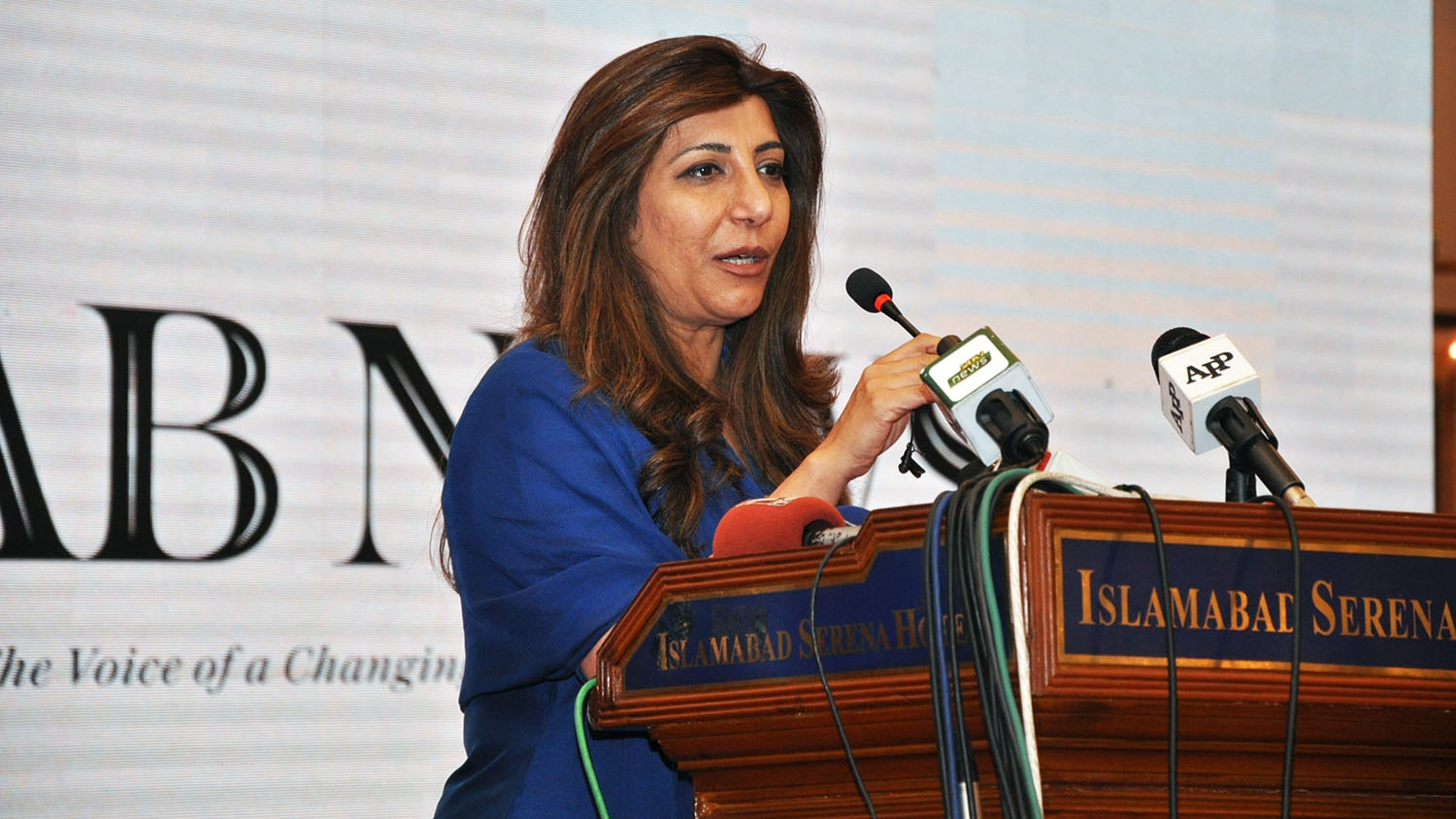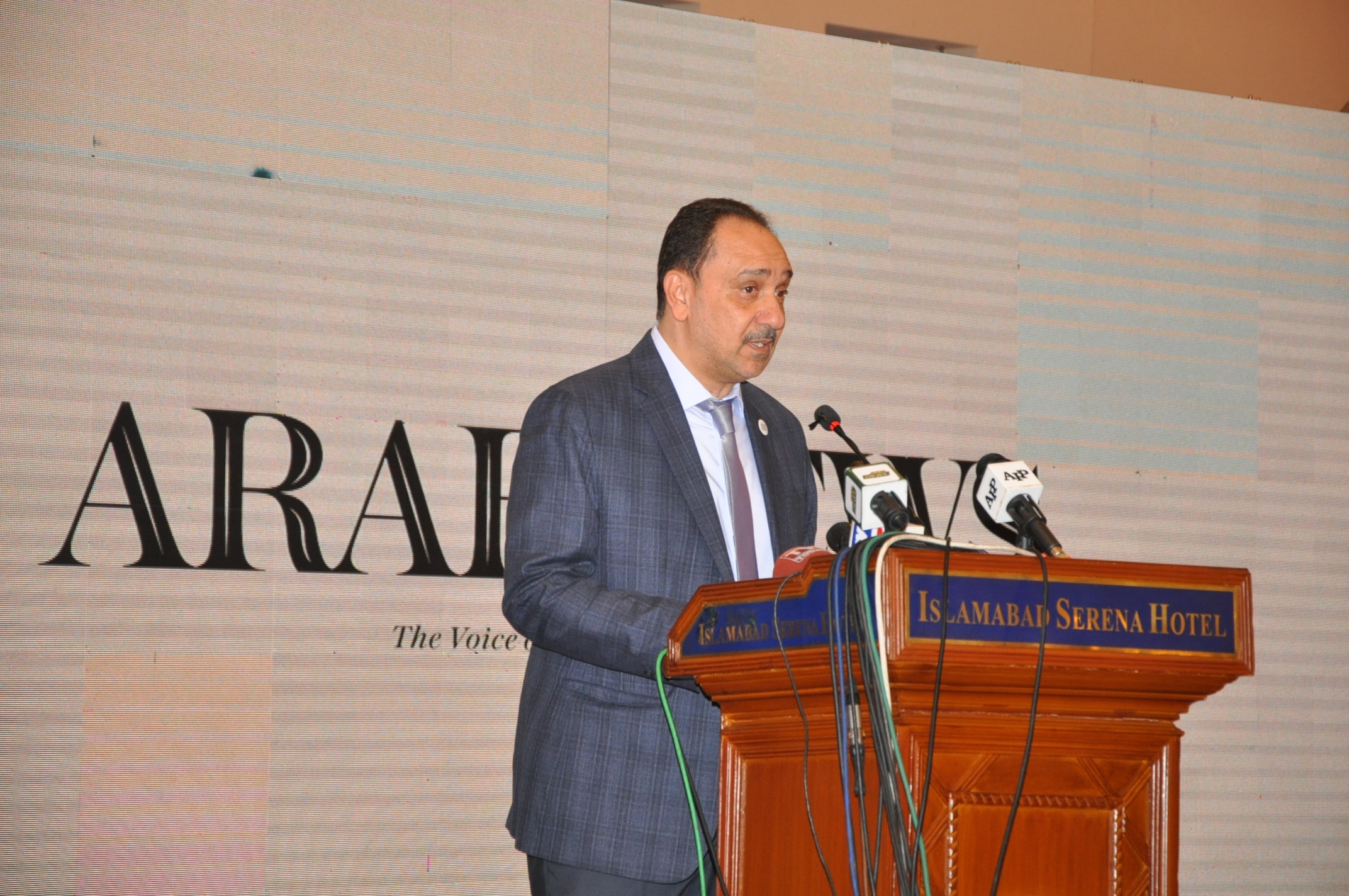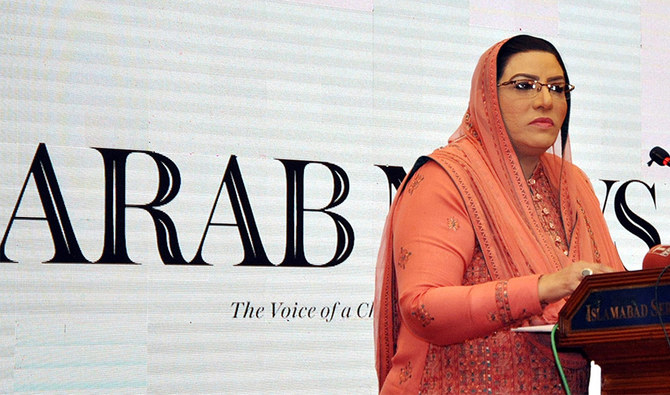ISLAMABAD: Arab News Pakistan is a source of inspiration for the local media with its authentic, reliable and diverse coverage of different issues, while Saudi Arabia and Pakistan are one in their religious, social and cultural values, top Pakistani politicians said on Thursday.
“We are one nation living in two different geographical locations,” said Dr. Firdous Ashiq Awan, Prime Minister Imran Khan’s media adviser, during an event to mark the second anniversary of Arab News Pakistan in Islamabad. “Your presence in Pakistan is a source of inspiration for all our media houses as they can learn from your best practices.”
The colorful ceremony saw in attendance cabinet ministers, politicians, diplomats and journalists, who lauded Saudi Arabia for its support of Pakistan in difficult times. They also hailed the objective reporting and analysis of the Pakistan edition of Arab News, which brings the Middle Eastern perspective to Pakistanis and vice versa.
Awan said Saudi-Pakistani relations reached new heights after Crown Prince Mohammed bin Salman’s visit in February last year.
“Pakistan is keen to further improve trade, cultural and strategic relations with Saudi Arabia,” she said and expressed gratitude to King Salman bin Abdul Aziz and the crown prince for continuously supporting Pakistan.
Arab News has been the Middle East’s leading English language news source and one of the first in the region to offer to the world the region’s perspective on local and global issues through its diverse stories.
“It is encouraging to see Arab News having latest technology to bring the online edition with an appeasing outlook,” Awan said, adding that media has a key role to play in promoting inter-state and people-to-people relations. She also praised diversity at Arab News.
“I’m glad to know there is women’s empowerment in Arab News, as a good number of women are working in the organization,” she said.
In his speech during the event, Arab News South and East Asia bureau chief Baker Atyani observed how Pakistan and its story has changed in the past few years.

Arab News South and East Asia bureau chief Baker Atyani speaks during an event marking the second anniversary of the publication's Pakistan edition, in Islamabad on Feb. 6, 2020. (AN photo)
“Since I have been covering Pakistan for many, many years now, militancy has been the main, sometimes the only, story,” he said.
Recalling his 18-month ordeal at the hands of militants in the Philippines, who kidnapped him in 2012, Atyani said that when he returned to cover Pakistan in 2018, he thought it would still be the same old story of bloodshed, violence and instability – a story about a young nation caught between a struggle with militants and failed attempts at democratic transition.
“But now the story has changed. Pakistan has moved forward,” he said. “Today, Pakistan is a business story. It is the story of a vibrant nation struggling to establish democracy despite numerous challenges, internal and international.”
Similarly, the Middle East is a changing region too and in recent times, it has looked toward Pakistan for more economic exchanges, and greater political partnerships.
“As all of these changes have taken place, Arab News launched in Pakistan, ready to bring in the Middle East story to Pakistan and the Pakistani story to the Middle East through the eyes and voice of this country’s people,” Atyani said.
“We are proud to present journalism and news accurately, in the way the people of these changing regions, Middle East and Pakistan, see it. And that’s what we will strive to keep doing, with your support and guidance,” he concluded.
A brief documentary on the achievements of Arab News Pakistan edition and Pakistani dignitaries’ comments on the organization was screened during the event, including the voices of Foreign Minister Shah Mahmood Qureshi and Minister for Science and Technology Fawad Chaudhry.
“Arab News is a powerful voice and helps expand these connections and bonds of friendship and cordiality,” said Aisha Farooqui, Pakistan’s Foreign Office spokeswoman.

Pakistan’s Foreign Office spokeswoman Aisha Farooqui speaks during an event marking the second anniversary of the publication's Pakistan edition, in Islamabad on Feb. 6, 2020. (AN photo)
“We have big plans for Arab News’ expansion, and Pakistan was the first choice for us and it proved a success,” Tarek Mishkhas, Arab News Deputy Editor-in-Chief, told the guests.

Arab News Deputy Editor-in-Chief Tarek Mishkas speaks during an event marking the second anniversary of the publication's Pakistan edition, in Islamabad on Feb. 6, 2020. (AN photo)
He said that Arab News has also launched its Japan edition and is “hoping to have the same success that we achieved in Pakistan in a short span of time.”
“Arab News is the voice of a changing region. We at AN, try to show the change and we will do our utmost to show the true face of Pakistan,” he said, adding that Arab News bagged four international awards in 2019 while another three were won in Pakistan by Arab News Pakistan edition.


















